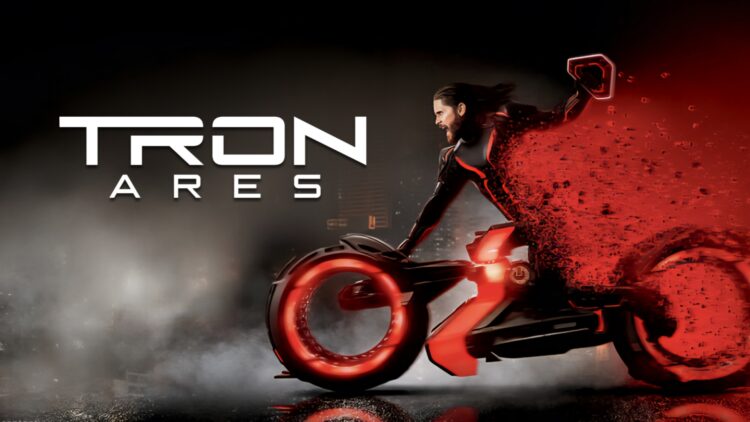More than four decades after audiences first fell into the neon circuitry of “Tron,” Disney’s digital frontier returns with “Tron: Ares.” The franchise has always been a strange artefact: part tech prophecy, part visual experiment, and part philosophical musing on what it means to be human inside a machine. Now, after years of development limbo and creative overhauls, the series powers back up through a darker, more industrial lens, one shaped by corporate-run creativity at its peak.
Directed by Joachim Rønning and scored by Nine Inch Nails, “Tron: Ares” enters the system carrying both weight and expectation. Over here, it’s more than a spectacle; the film tests whether this world, all glowing edges and existential code, can still resonate in an age when artificial intelligence feels less like fantasy and increasingly like a fact of life.

In an age of tech bros, Elon Musk, and technological propaganda, it’s easy to get swept up in our very own age of emergence. And that’s where “Tron Ares” aims to be a reflection of us: our fears, our sense of control, our creation. What is right? What is moral? Whether it succeeds in that mission is another question entirely.
Set years after the events of “Tron: Legacy,” ENCOM has transformed into a corporate monolith powered by data and ambition. Sam Flynn has quietly stepped away from the company (well, that’s convenient), leaving leadership in the hands of Eve Kim (Greta Lee). Meanwhile, Julian Dillinger (Evan Peters), grandson of the original film’s antagonist, builds his own empire with ruthless precision.

At the centre of it all is Ares (Jared Leto) and a bunch of other combatants, including Athena (Jodie Turner-Smith) and Caius (Cameron Monaghan), programs created by Dillinger to be the perfect digital combatant. He’s intelligent, obedient, and expendable. Not only do they exist in the digital world, but they are also able to be manifested into the real world via some 3D-printed-carbon process (yeah, it’s never explained in the film). Soon, what begins as a corporate power play spirals into something deeper, blurring the lines between creator and creation once again.
The first act hums with sleek corporate paranoia that recalls Joseph Kosinski’s “Legacy.” Beneath the glassy surface lies an icy tension. It’s part boardroom thriller, part existential sci-fi. Eve and Julian are locked in their own Code Race, driven by different goals. One seeks progress, the other domination, with the introduction of the Permanence Code. It’s a discovery that lets programs remain in our world for longer than 29 minutes. Why 29? That’s like asking why not six or seven. The film doesn’t answer, and perhaps that’s part of the mystique, which the film uses to both its benefit and potentially to some chagrin later on.

Indeed, what stands out early is how tactile the film feels, especially in its real-world sequences. Rønning replaces “Legacy’s” sleek futurism with a grittier architecture of concrete, glass, and fluorescent glare, as the cityscape and its bright lights are given time to bask in here. And the marriage of the Grid world and the real world is seamless; it’s astounding.
“Tron: Ares” reconfigures the franchise’s digital mystique into something more grounded. The textures turn cold and industrial, trading the hypnotic polish of “Legacy” for machinery and grime. On paper, it’s a smart evolution. Ares’ journey aims for introspection, probing identity and purpose in a world where man and machine are nearly indistinguishable. Yet despite its ambition, the film rarely connects emotionally. Where “Legacy” shimmered with awe and wonder, “Ares” often collapses under its own ambitious heaviness, losing the luminous spark that once made the Grid feel alive.
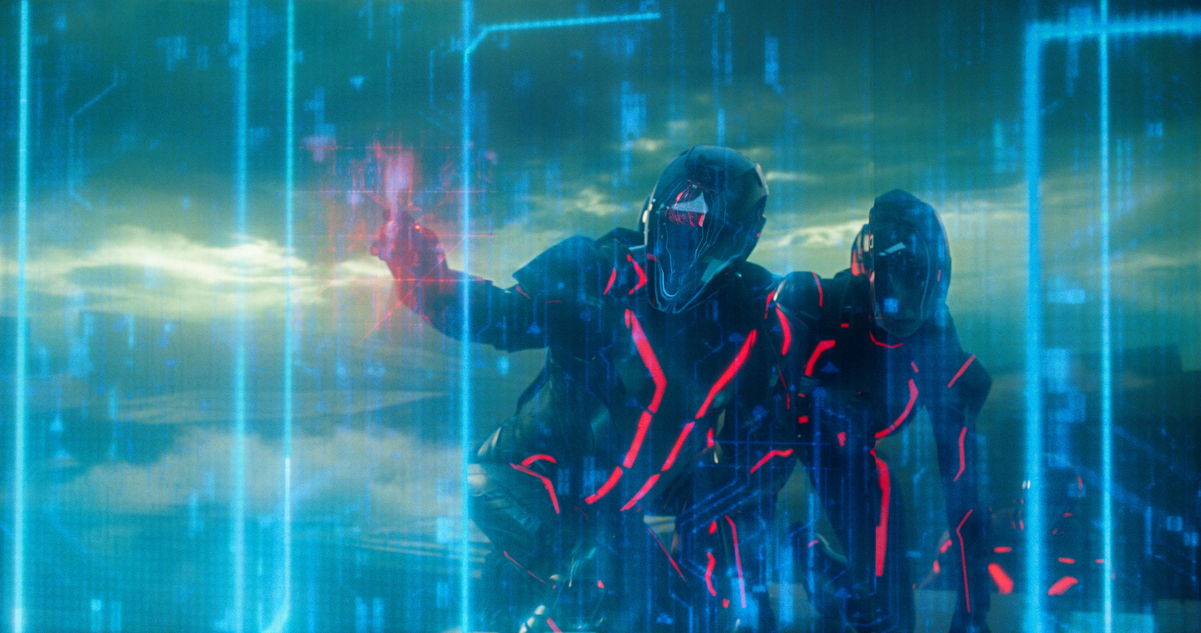
Part of that struggle lies in living within “Legacy’s” shadow. Joseph Kosinski didn’t just make a sequel in 2010. He crafted a visual experience that fused design, sound, and emotion into something timeless. His reputation has only soared with “Top Gun: Maverick” and “F1,” making his absence here even louder.
Rønning, meanwhile, is Disney’s reliable hand, having directed “Maleficent: Mistress of Evil” and “Young Woman and the Sea”. But looking back, he’s more craftsman and less visionary. “Ares” isn’t his safest film, per se, but it feels like one shaped by studio caution. He conjures striking imagery and fluid action, yet the spark of invention rarely seizes. Some creative hot dogs, you might say, were left a little too long off the grill.
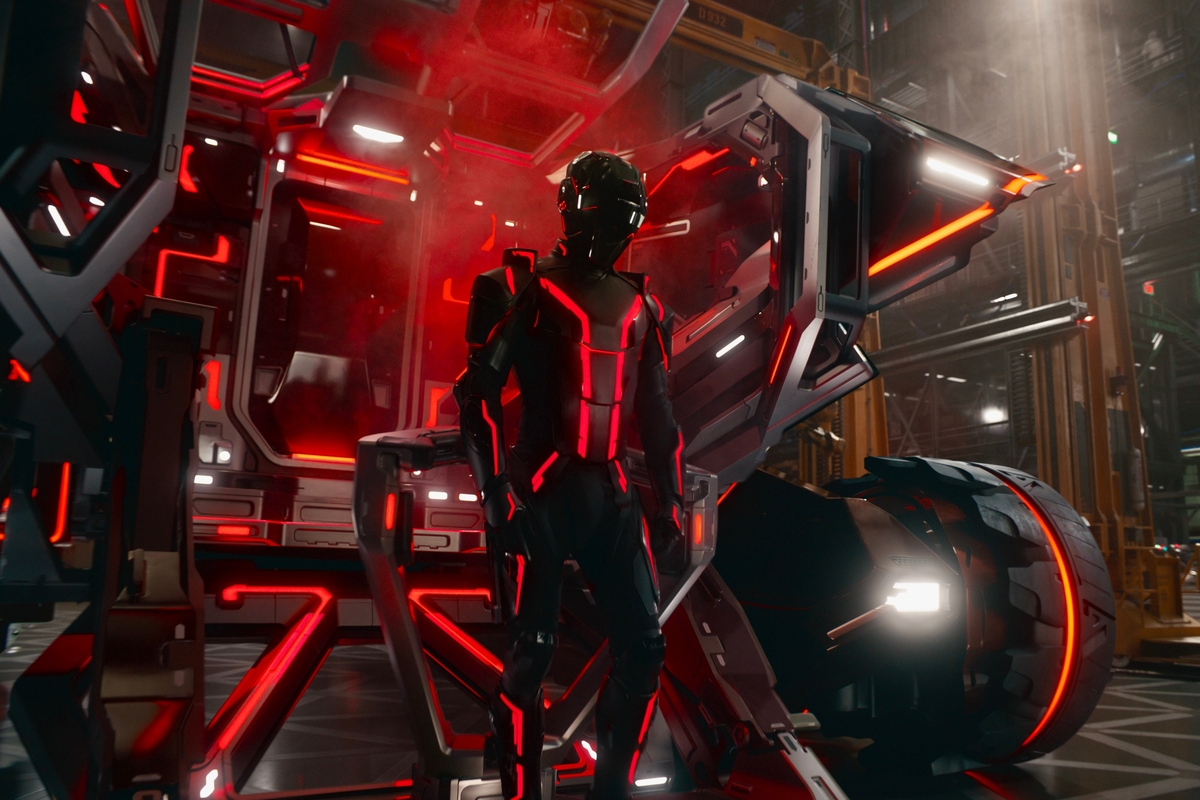
Still, in rhythm and pacing, “Tron: Ares” finds its current. Rønning’s music-video sensibility works to the film’s advantage. Each sequence pulses with energy, every frame cut to Nine Inch Nails’ relentless beat. The choreography is tight, the camera crisp, and for fleeting moments, “Ares” channels the same kinetic rush that once made “Legacy” soar. The slickness is there, and it’s fire!
Performance-wise, the film finds a certain stability in Greta Lee, who continues to prove herself quietly magnetic and heartfelt. Behind her mascara-lined cat eyes are a mix of curiosity and grief that grounds the film’s digital chill in something real.
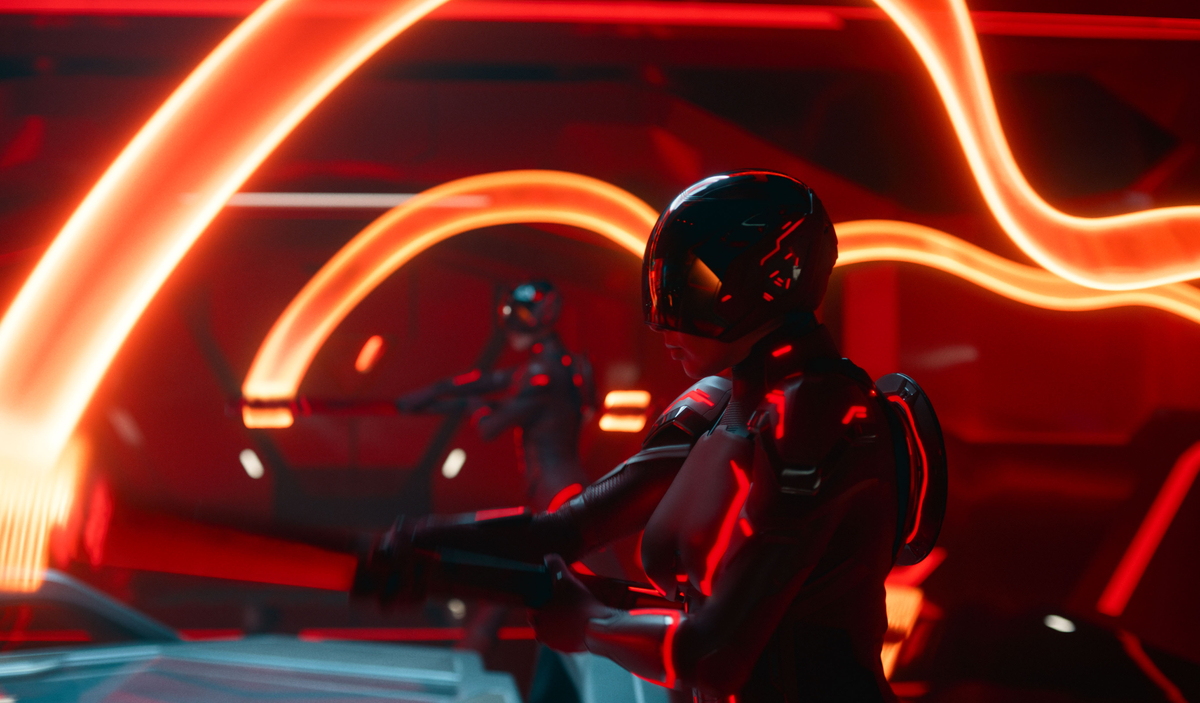
Jared Leto, on the other hand, feels like a digital vampire with a curious hunger for morphing loyalties. His Ares is built to embody an AI’s awakening. We’re supposed to empathise with a being torn between identity and programming. However, Leto plays him with a detachment that undercuts the transformation. His wide, unblinking stare works when Ares is mechanical, but as the story evolves, the performance stays flat. Where “Ex Machina” and “I, Robot” found poetry in synthetic consciousness, “Ares” treats it like code execution. The result is a story about accessing emotion that never quite makes us care.
That same detachment infects Ares and Eve’s dynamic, which never quite connects. On paper, it’s a compelling dichotomy. It’s two entities searching for their place in the world and their own sense of meaning. Yet, their chemistry feels clinical. Lee injects warmth where she can, yet Leto’s silly stillness renders their scenes mechanical. What should feel like a connection instead plays like an unskippable YouTube ad.

When Ares finally reaches his so-called ascension, the payoff falls flat. Not even a holographic Kevin Flynn (Jeff Bridges), offering zen-like guidance in full Big Lebowski mode, can reboot it. It’s the kind of climax that knows the emotion it wants but fails to convey it.
Evan Peters, however, does electrify. His Julian Dillinger radiates chaotic charisma. He’s a tech mogul played with cartoonish menace and a wink of self-awareness. It’s a role that could easily glitch into parody. Sure, the writing for him is basic, but Peters runs it at just the right frequency: arrogant, magnetic, and wickedly fun.
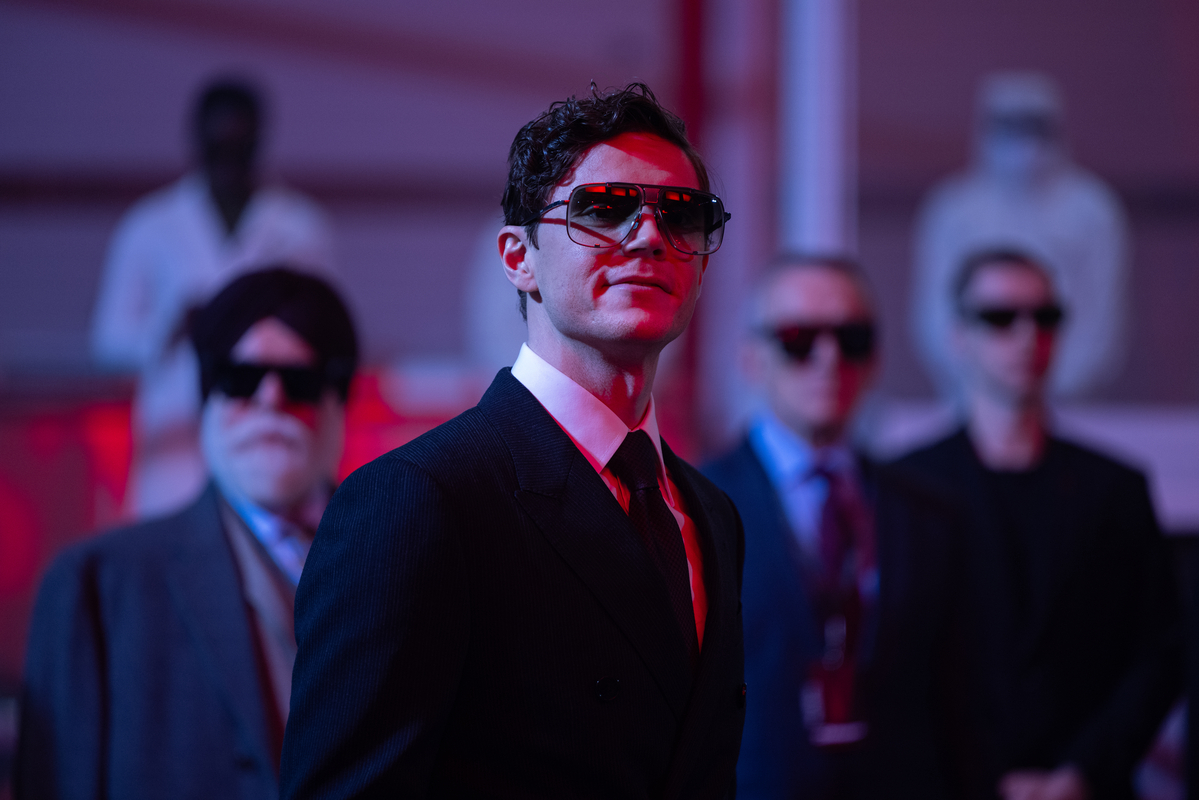
Even when his mom, portrayed by the ever-radiant Gillian Jacobs, berates him, he snaps back like the kid in the basement playing video games. Admittedly, the dialogue might lag, yet he keeps the data stream flowing, sometimes proving more compelling than the film around him.
Meanwhile, Jodie Turner-Smith commands the screen every time she steps onto it. As Athena, she moves like a butterfly samurai — the comparison comes from a moment when she conjures wings and evokes the Transformer Starscream. Her delivery cuts like a command line, and her gaze never falters. There’s menace in her calm and purpose in every motion.
Unlike Ares, who struggles to evolve, Athena leans closer to the radical ideal of an intelligent program. Granted, the writing isn’t flawless, but her performance and motives remain consistent. Ultimately, it’s an interpretation that stabilises the film’s conflict and reminds us how potent a truly programmed antagonist can be.
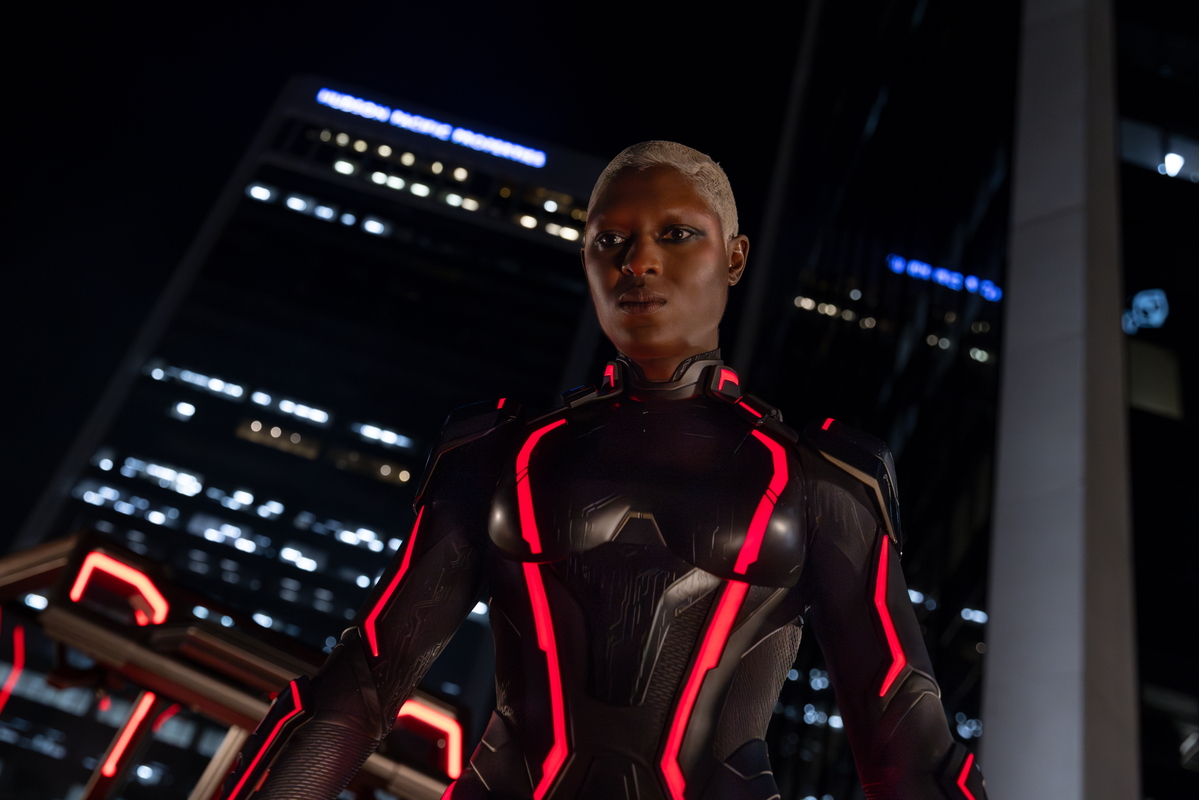
There’s something mythic in how “Tron: Ares” positions its two central programs. Like their namesakes from Homer’s Iliad, Ares and Athena embody opposing philosophies. They are brute force versus strategy, chaos versus order. Jared Leto’s Ares is designed to be the perfect soldier, but falters under the weight of awakening. Jodie Turner-Smith’s Athena represents the unflinching precision of a mind uncorrupted by emotion. When Ares diverges from his directives, their clash becomes less hero versus villain and more a duel of ideals. It’s instinct against control, creation against containment. For once, the film grazes something profound.
Visually, “Tron: Ares” is breathtaking. This isn’t the “Legacy” Grid. It’s the Dillinger Grid, a world of reds and blacks, dominance and power. The palette radiates tension; every environment gleams with unnerving symmetry. When the story dips into the original ENCOM Grid of 1982, it’s a dazzling callback to the pixel-era glow, jittering light, and that nostalgic monochrome shimmer of its inhabitants. It’s one of the film’s best sequences, bridging past and present through visual language.
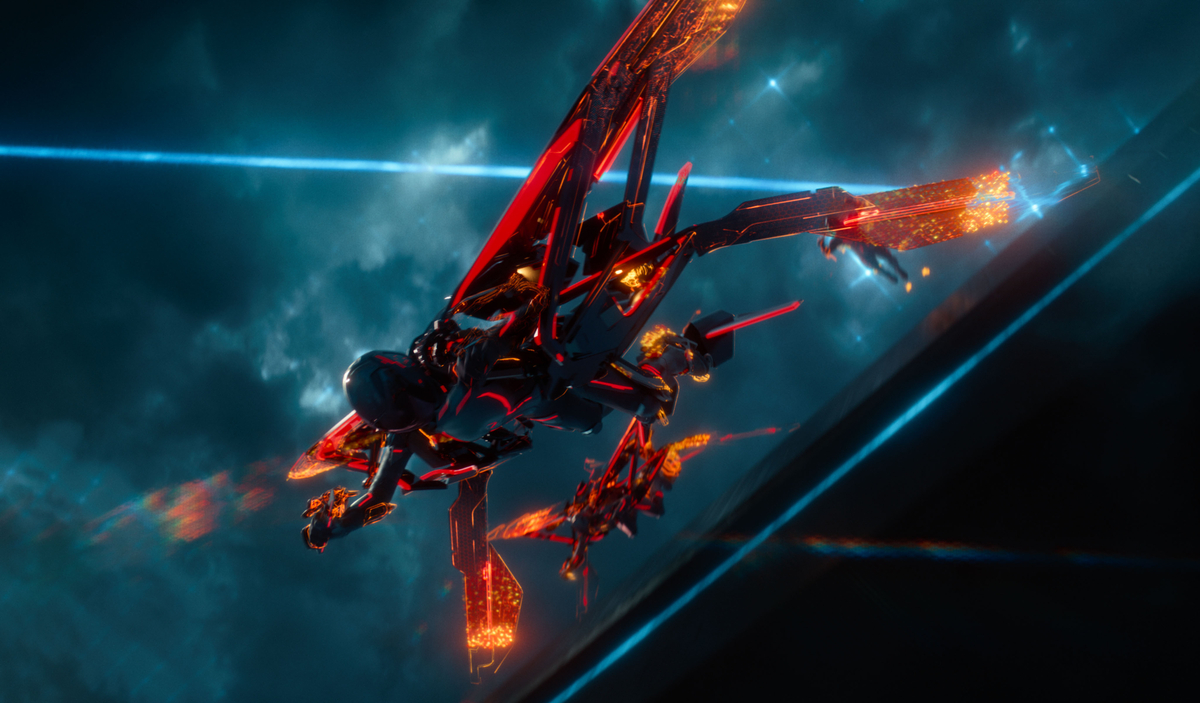
If there’s one undeniable reason to experience “Tron: Ares,” it’s for its beauty. Shot by Jeff Cronenweth, David Fincher’s trusty cinematographer, the film is an exercise in precision. Every frame crackles with contrast and polish. Cronenweth’s music-video sensibility, honed on Taylor Swift and Lady Gaga, gives the film its pulse. It often feels like a high-concept visual album. When Ares moves in sync with the music, it’s hypnotic. Even when the story drops packets, the visuals stay pristine.
The soundtrack completes the circuitry. With Nine Inch Nails at the helm, “Tron: Ares” trades Daft Punk’s romantic futurism for raw industrial techno. The score hums, growls, and drives the film like a live wire. Trent Reznor and Atticus Ross were great on “Challengers” and over here, they continue their brilliant streak. Their grainy score becomes a loud, banging, sensory experience that generally outperforms the story itself. Does it surpass Daft Punk’s exemplary soundtrack? Maybe not. But it doesn’t need to.
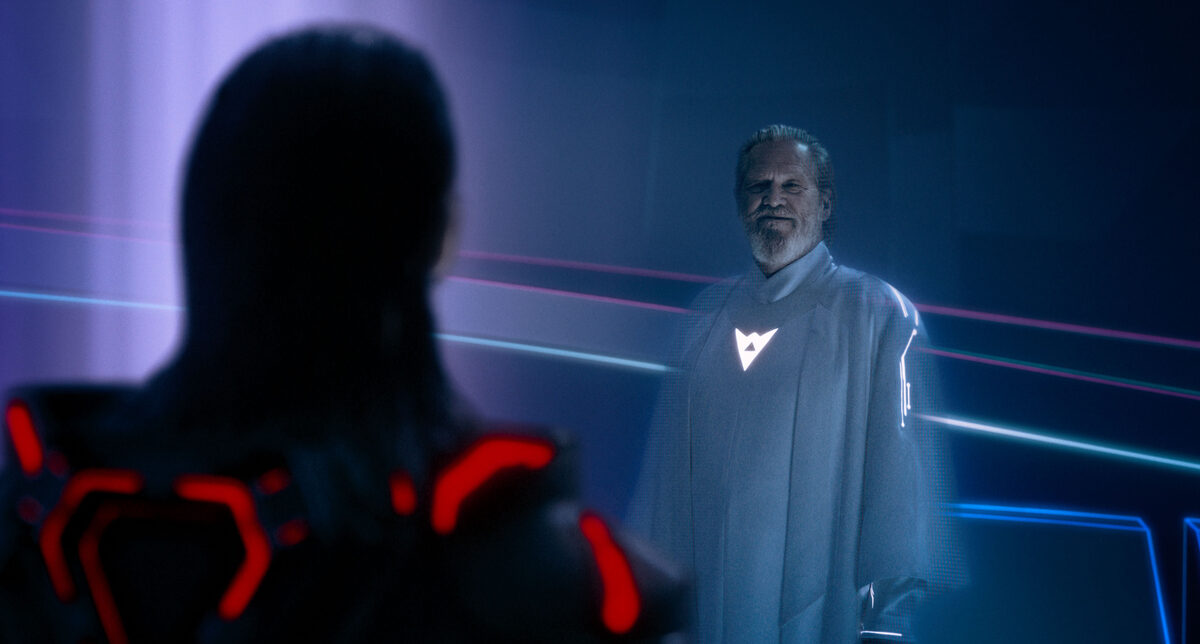
The funniest thing about “Tron: Ares” is that the franchise has evolved to a point where it no longer involves Tron at all. Interestingly, that’s the irony. The character of Tron, who was a big part of both movies and even the canonical animated series, has, surprisingly, faded into obscurity. Instead, the title has gradually become this vast digital idea. What began as a story about a man entering his own creation has now, over time, expanded into something broader and stranger.
The film clearly lays down the circuitry for future sequels, and, naturally, it would be unwise for Disney not to capitalise on that potential. But if the Grid is ever to truly light up again, it must first rediscover the human spark that made “Legacy” resonate. And this is, namely, the chemistry between Sam and Quorra and the awe that made the digital world feel alive. As it stands, Jared Leto simply cannot serve as that main conduit.

“Tron: Ares” is currently playing in cinemas.
The Review
"Tron: Ares"
Stylish, sleek, and saturated in light, "Tron: Ares" is everything you’d expect from Disney’s most visually ambitious franchise. And yet, it’s also a reminder that no amount of neon can replace heart. With its music-video rhythm, industrial beauty, and haunting score by Nine Inch Nails, the film feels alive in every sense except the emotional one. The Grid glows brighter than ever, but the connection flickers.
Review Breakdown
- Fair, but could be better.

